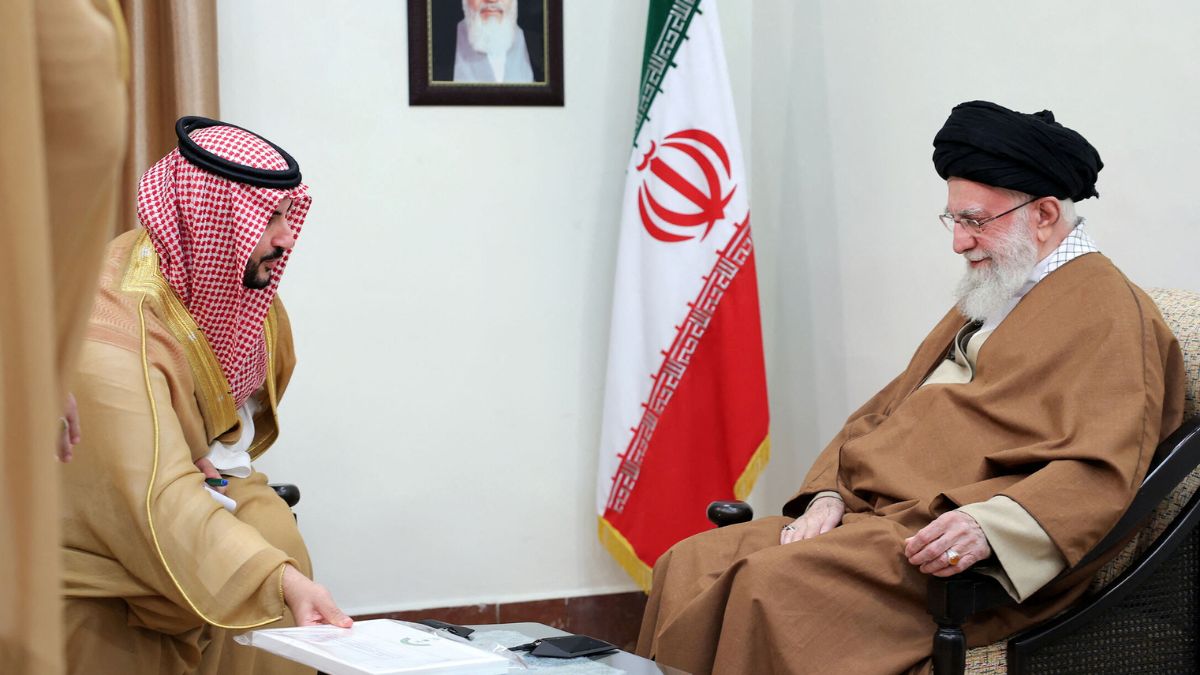The real reason why Saudi Crown Prince MBS sent his brother to Tehran amid US-Iran talks
 Iran's Supreme Leader Ayatollah Ali Khamenei meets Saudi Defence Minister Prince Khalid bin Salman in Tehran | Reuters
Iran's Supreme Leader Ayatollah Ali Khamenei meets Saudi Defence Minister Prince Khalid bin Salman in Tehran | Reuters
Two days before Iran and the US were to begin the second round of talks in Rome, Saudi Arabia’s Defence Minister flew to Tehran to meet Iranian leaders. Prince Khalid bin Salman, who arrived in Iran on Thursday, is the younger brother of the Kingdom's de-facto leader Mohammed bin Salman, also known as MBS.
Prince Khalid was welcomed by Iran's Chief of Staff of the Iranian Armed Forces Major General Mohammad Hossein Baqeri. The prince also met Iran's Supreme Leader Ayatollah Ali Khamenei and the reformist President Masoud Pezeshkian.
The last time a Saudi leader visited was in 1997 when King Abdullah bin Abdulaziz did so, when he was the Crown Prince. That time too a reformist - President Mohammad Khatami - was in office.
Though both sides stated that the visit was aimed to enhance the defence interaction between both countries and to strengthen peace and stability in the region, analysts feel the real reason for the top Saudi diplomat's visit could be to pass on a significant message that Saudi will not be a mediator in the attack on Iran.
Ali Al-Shihabi, a Saudi analyst close to the royal court, confirmed that the Kingdom was indeed sending a message. "Saudi is sending a message to Tehran that it will not be a conduit in any fashion towards an attack on Iran," Shihabi said adding that the Kingdom backed US President Donald Trump's efforts to find a diplomatic solution and was not in support of a war.
Though Saudi leadership initially steered away from taking any steps to mend relations with Iran, which worsened in 2016 after Iranian protesters stormed the Saudi embassy in the Iranian capital following the execution of a Shiite cleric in Saudi Arabia, it later mended ties after Beijing intervened.
Saudi Arabia, along with the United Arab Emirates and Qatar, had earlier made it clear that they would not Israel to use their airspace to strike Iran. This is because Riyadh is concerned that letting the US or Israel use its soil to attack Iran could backfire as Tehran could retaliate by attacking its oil infrastructure, either directly or through proxies, including the Houthis, like in 2019. An attack in 2019 left Saudi facing a major crisis after a missile and drone struck its oil infrastructure. It was believed that Iran was behind this attack.
Iran too wants a good relationship with Saudi Arabia and other Gulf nations as it needs their support to counter US sanctions.
Middle East